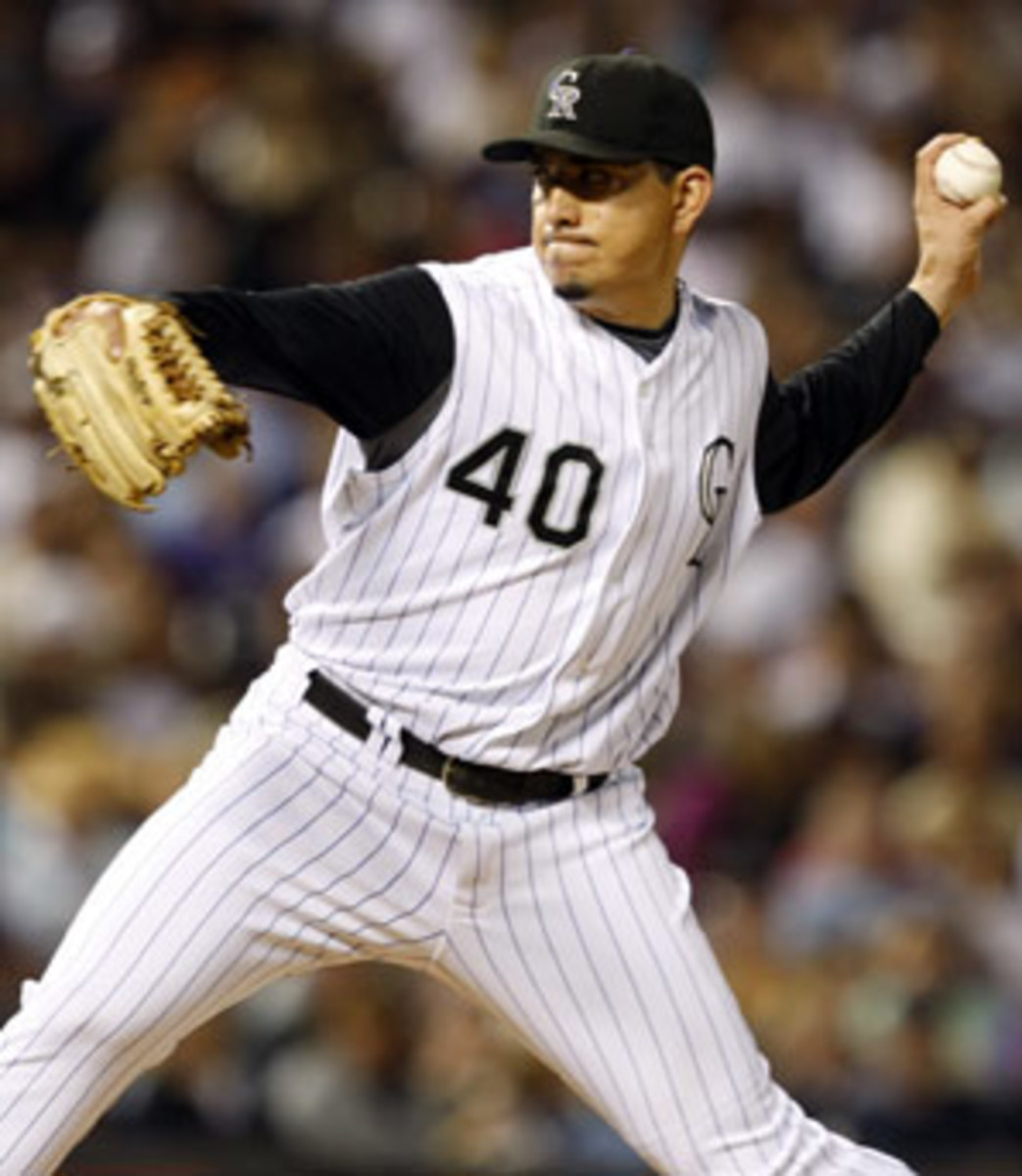
Shift in thinking and dollars causing change in closer's role
LAS VEGAS -- "No salary is too small," the young guy with the stiff hair and the stiff suit was saying as his burger oozed blood onto the clear plastic plate in front of him. "No job is too small. Do I have confidence in my abilities? Heck yeah, I do. But my ego isn't too big to think I'm above anything. I'll take anything I can get."
The young man was one of the dozens, if not hundreds, who each year travel to baseball's winter meetings with dreams of landing entry-level front office jobs. But even though the chances of getting those jobs is more minuscule than ever, the aspiring gofer had the right idea, at least as he expressed it to his buddies in the snack bar at the Bellagio: be humble, be flexible, keep your expectations low.
His is an attitude that, it has become clear at these meetings, a different sort of free agent -- the sort who has proven adept at finishing major league games on the mound -- will be forced to adopt this off-season. In early October, Paul Kinzer, the agent for the Angels' record-setting closer Francisco Rodriguez, made it known that the starting point for a free-agent deal for his client would be $75 million over five years. On Tuesday, slightly more than two months later, Rodriguez agreed to a three-year deal with the New York Mets valued at $37 million. In other words, Rodriguez, who saved a record 62 games last year and blew only seven, is now guaranteed less than half the total compensation he had realistically hoped to earn. Meanwhile, lefty ace CC Sabathia was closing in on a seven-year, $160 million deal with the Yankees, and fellow free-agent starters Derek Lowe, A.J. Burnett and Ben Sheets were poised to land megadeals of their own.
Late Tuesday afternoon, Mark Shapiro, the Indians' G.M., sat in the sort of high-floor hotel suite that those who fling resumes at him fantasize about one day occupying (flat-screen TV, breathtaking desert views), and talked with his team's beat reporters about the market for closers, and how Rodriguez's reported deal might impact it. "I'm not sure those numbers affect that market, as much as maybe reflect it," Shapiro said. "I do think that the closer market is a unique sector of this free-agent market. It happens to be the one area in which there is some depth, and some breadth. That, along with some of the external conditions [i.e., the wider financial crisis] -- like in any free market system, it's going to have an impact."
Shapiro himself appeared as if he would soon benefit from the collapse in the closers' market, as reflected or affected -- probably some combination of both -- by Rodriguez's unexpectedly short and (relatively) cheap contract. The Indians were reported to be on the cusp of signing closer Kerry Wood, an All-Star with the Cubs in 2008, for two years. ("Our interactions with him have been positive and constructive," is all that Shapiro would allow). That Wood appears ready to jump at whatever salary the mid-market Indians, whose resources Shapiro usually describes as "limited," have offered him -- a number that had yet to be leaked as of Tuesday night -- does not bode well for Brian Fuentes, the other top free-agent closer on the market who was initially said to be seeking a deal similar to that for which Rodriguez settled, but is now in line to make significantly less.
While a troubled economy and a broad and deep pool of available firemen (who also include Seattle's J.J. Putz and Colorado's Huston Street, both of whom are on the trading block) have combined to lower the prices for closers, the future earnings of Rodriguez and his colleagues are also being impacted by a gradual shift in on-the-field strategy, and a resulting redistribution of financial resources, among many major league teams. No longer does every manager feel obligated to have a single, flame-throwing reliever to whom he can entrust the ninth inning night after night, especially when the dollars it would require to employ one can be spent on other needs.
Rays skipper Joe Maddon said on Monday that he plans to continue to use his best relievers at the point in each game in which they're most needed, as he did to such great effect last year ("You just can't worry about the closer, because if you can't get to the closer with the lead, what difference does it make anyhow?" he asked), and several other managers outlined similar plans. The A's Bob Geren said that he didn't plan to anoint either Brad Ziegler or Joey Devine as his closer any time soon, as he likes the idea of flexibility. "It's different," he said. "Not too many teams are doing it that way. But right now I feel like that's what I would do."
Even the Angels' Mike Scioscia, who so strictly used Rodriguez, and Rodriguez alone, in closing situations for the past several years, said on Tuesday that he feels no rush to name a successor. "Who ends up closing out the last three outs of a game could be at times more [based upon] matchups than it's been in the past," he said. "We're certainly going to have some power arms that can hold leads and close out games, and I think we're comfortable with that."
Someday, the very concept of a closer might become a relic of major league baseball's past, like a scheduled doubleheader or a 99-cent hot dog. That day hasn't arrived yet, but its approach is another reason why this class of free-agent closers has been forced to follow the lead of the job-seeking masses at these winter meetings, and take anything they can get.





